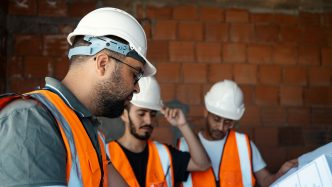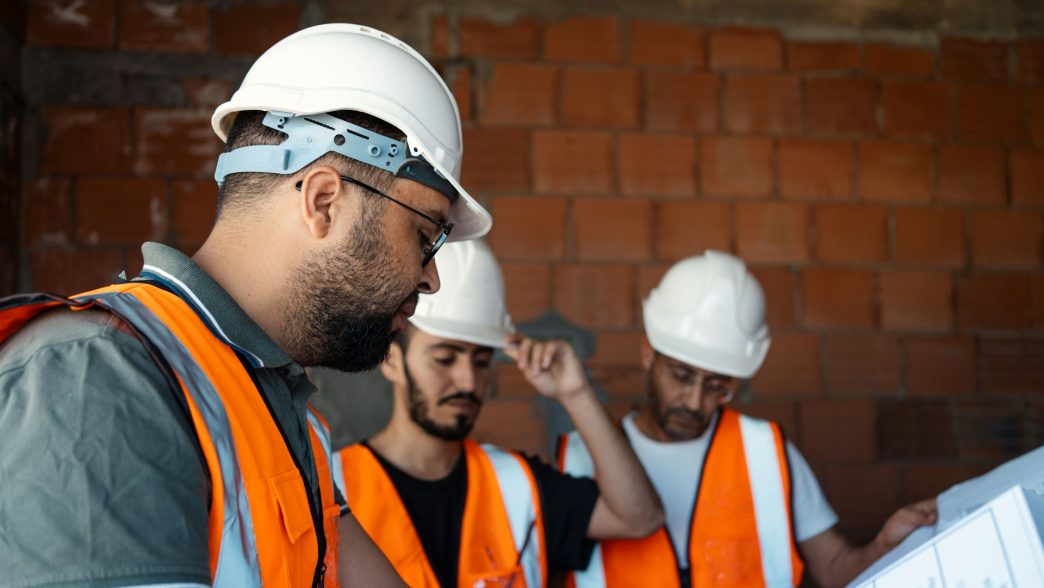When it comes to customer service, construction companies often fall into the trap of thinking their work speaks for itself. But in today’s fast-paced world, that approach just doesn’t cut it. Customers expect more than just a solid build—they want transparency, communication, and a smooth process from start to finish. How can construction companies step up their customer service to meet these rising expectations? It’s all about focusing on relationships, technology, and a proactive mindset.
The Power of Communication
In business, communication is king. Misunderstandings about timelines, costs, or even small details can turn a dream project into a frustrating experience for clients. Construction companies that want to thrive need to place communication at the forefront of their customer service strategy.
Clear and consistent updates—whether through phone calls, emails, or project management apps—make all the difference. Not only do they keep clients in the loop, but they also build trust. When a client knows exactly what’s happening at every stage of their project, they’re far more likely to feel confident in the company they’ve hired. Proactive updates about potential delays or issues can prevent small hiccups from turning into major frustrations.
Clients appreciate feeling heard. Inviting feedback at every stage and acting on it creates a strong customer relationship. If a construction company can become known for its communication skills, word of mouth will inevitably bring more business.
Leveraging Tech for Customer Experience
Technology is transforming every industry, and construction is no different. For those companies still relying on old-school methods to manage customer relationships, it’s time for a tech upgrade. The right tools can do more than make operations smoother—they can totally change how clients experience a project.
This is where the magic happens: construction CRM software is a game-changer. By streamlining communication, tracking every phase of the project, and offering customers a clear view of the process, construction companies can eliminate confusion. The software allows companies to track interactions with clients, keep all project details in one place, and even send real-time updates. Clients no longer need to worry about where their project stands because they can check in with a simple tap or click.
What’s more, these tools make it easy to set reminders for follow-ups, manage contracts, and document client preferences—all of which contribute to a stellar customer experience. For construction companies looking to stay competitive, investing in tech that enhances customer relationships is a no-brainer. The companies that fully embrace this change will find themselves building not just projects but lasting client trust.
Transparency Builds Trust
In an industry where surprises often come with a hefty price tag, transparency is crucial. No one likes unexpected fees or delays, and nothing erodes client confidence faster than the feeling they’ve been left in the dark.
That’s why being upfront about costs, materials, timelines, and potential challenges is key to customer satisfaction. Clients want to know what to expect—and when. Transparency starts with the first meeting. It’s important to have detailed conversations about the project scope, potential risks, and any factors that might affect the final result.
By walking clients through the planning process and providing a clear outline of what’s to come, construction companies can prevent many common complaints. And when hiccups do happen (because they always do in construction), being transparent about the issue and the solution is vital. Clients are far more forgiving when they feel like they’re being kept in the loop.
Smart Homes, Smarter Service
The construction world is buzzing with talk of future-proofing homes. With the growing demand for technology-driven solutions, construction companies have an opportunity to up their customer service game by integrating smart home technology into their projects. Whether it’s automated lighting, advanced security systems, or energy-efficient appliances, clients are increasingly interested in living spaces that make life easier.
By offering smart home options, construction companies can not only deliver the modern living spaces people crave but also show that they’re ahead of the curve when it comes to customer service. And when a company is capable of building smart homes, they’re providing clients with exactly what they want—cutting-edge convenience and sustainability. The key is understanding the latest technology trends and being able to seamlessly integrate them into each project.
This approach also sets construction companies apart from competitors. It demonstrates a commitment to innovation and customization, which leads to happier, more loyal clients. Plus, when you’re the company building homes for the future, you’re the company people talk about.
Post-Project Support and Follow-Ups
Construction companies often view a project as complete when the final nail is hammered in. But in reality, customer service doesn’t end when the project does. In fact, some of the most memorable customer service moments happen post-project. Following up with clients after a build not only reinforces trust but also opens the door for future business.
Post-project support includes addressing any concerns that arise after move-in, answering lingering questions, and even offering warranties or maintenance options. It’s these extra touches that keep customers happy long after the dust has settled.
Reaching out for feedback is another overlooked gem. Asking clients what went well and where improvements could be made shows that the company values their input and is committed to continuously improving.
In a world where word of mouth is as powerful as online reviews, a follow-up phone call or email can turn a one-time customer into a loyal advocate. This kind of ongoing service shows clients that they weren’t just another project—they were part of a lasting relationship.
Customer service in construction has come a long way, but there’s still plenty of room to grow. In an industry where trust is everything, going the extra mile for clients ensures that they don’t just get a great project—they get an unforgettable experience.













